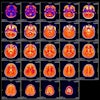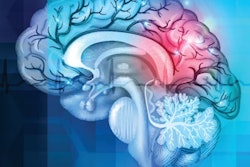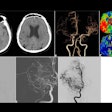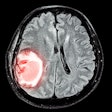Imaging Biometrics, a wholly owned subsidiary of IQ-AI, is highlighting results from a recent study published in the American Journal of Neuroradiology.
The study, led by Michael Iv, MD, from the Stanford University Medical Center, found that dynamic susceptibility contrast (DSC) MR perfusion improved interreader agreement and confidence in neuroradiologist interpretation. The company touted that its DSC-fractional tumor burden (FTB) resulted in the highest agreement in BT-RADS scores among all raters as well as the highest confidence scores for interpretation.
The company also noted the high level of agreement with the DSC-FTB despite the range of practice experience.
Additionally, perfusion MRI resulted in interpretation changes that could alter therapeutic management in up to 20% of patients, the company highlighted. Imaging Biometrics' FTB maps are generated from the company's Delta T1 and Neuro standardized relative cerebral blood volume maps. The quantitative maps also make way for direct volumetric comparison across time to monitor response to treatment, the company said.



















